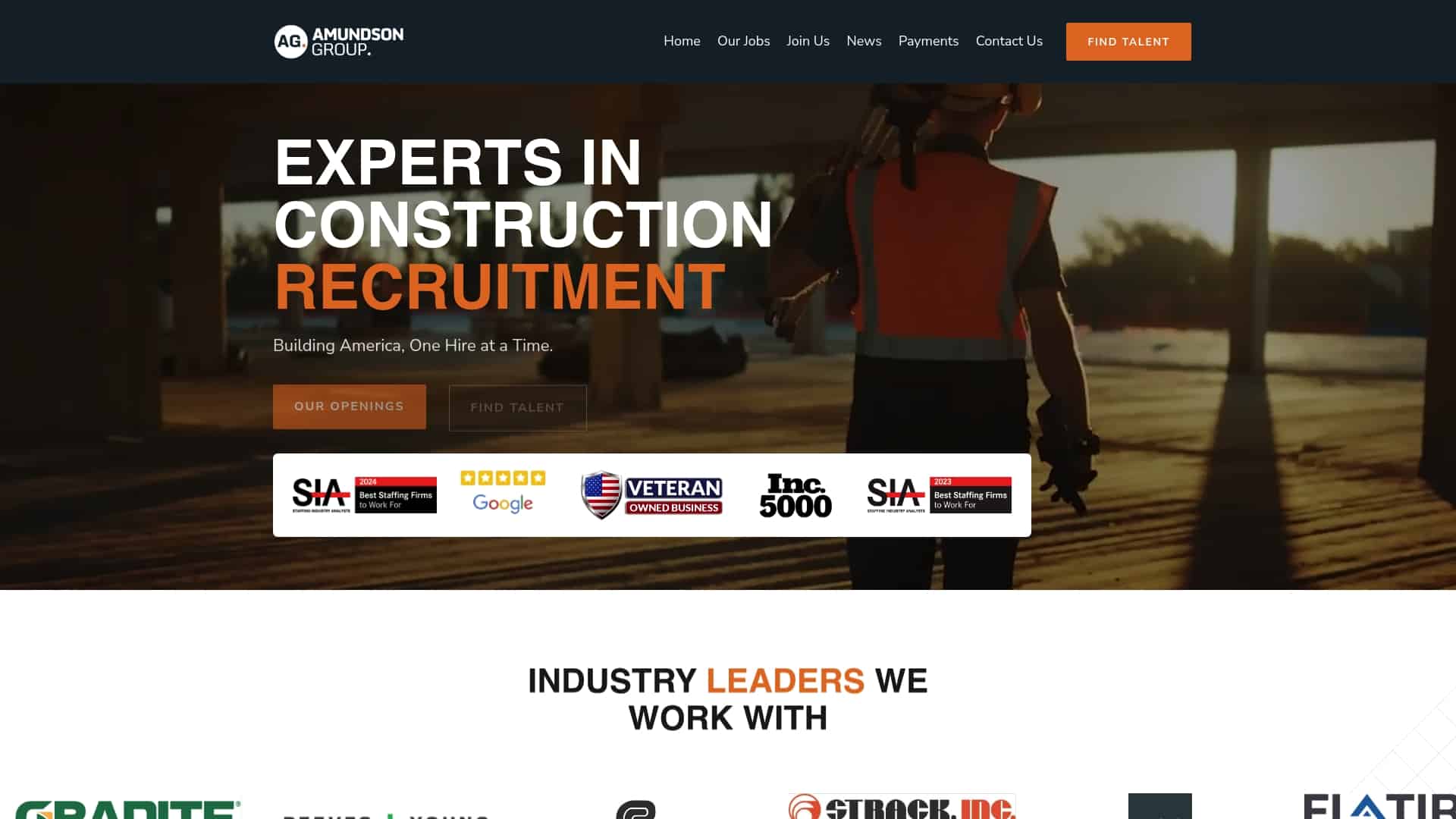Understanding the Market: Why Construction Companies Welcome No Experience Applicants
The construction industry faces a significant labor shortage that continues to grow. According to the Associated Builders and Contractors (ABC), the construction industry needed to hire 546,000 additional workers in 2023 alone to meet demand. This labor gap creates a unique opportunity for individuals with no prior experience.
Construction companies actively recruit inexperienced workers because they can train employees according to their specific standards and methods. Many firms prefer to develop talent from scratch rather than correct habits learned elsewhere.
Several factors make construction particularly accessible to newcomers:
- Aging workforce creating vacancies as experienced workers retire
- Expanding infrastructure projects increasing demand for labor
- Technology adoption reducing the physical demands of many construction roles
- Apprenticeship programs designed specifically for those with no background
- Competitive starting wages compared to other no-experience opportunities
The Bureau of Labor Statistics reports that entry-level construction laborers earn a median wage of $17.83 per hour, significantly higher than most retail or food service positions that typically welcome inexperienced workers. This combination of accessibility, training opportunities, and competitive compensation makes construction jobs without experience increasingly attractive career launching points.
Key Takeaways
| Key Point | Details |
|---|---|
| Labor Shortage | The construction industry needs to hire 546,000 additional workers in 2023 due to a significant labor gap. |
| Training Opportunities | Companies prefer to train inexperienced workers according to their standards, providing a clear pathway for skill development. |
| Accessible Positions | Entry-level construction roles, such as laborers and apprentices, offer accessible entry points for those without prior experience. |
| Competitive Wages | Entry-level construction positions have starting wages averaging $17.83 per hour, higher than many other no-experience jobs. |
Identifying Entry-Level Construction Roles and Opportunities

The construction industry offers numerous pathways for individuals with no prior experience. Understanding which positions welcome newcomers can help focus your job search effectively.
Construction laborer positions form the foundation of entry-level opportunities in the industry. These roles typically involve site preparation, material handling, and assisting skilled tradespeople. Data from the Construction Labor Research Council shows that laborers represent approximately 23% of all construction workers, making this the most accessible entry point.
Common no-experience construction roles include:
- General Construction Laborer – Assists with basic tasks across construction sites
- Apprentice positions – Formal training programs in specific trades (electrical, plumbing, carpentry)
- Flaggers/Traffic Control – Directs traffic around construction zones
- Equipment Helper – Assists with operation and maintenance of construction equipment
- Site Clean-up Crew – Maintains site safety and organization
Each role offers different advantages in terms of physical demands, skill development, and advancement potential. For instance, starting as a helper to a skilled tradesperson often provides a faster path to learning specialized skills than general labor positions.
Construction companies frequently advertise these positions through job boards like Indeed.com, which currently lists over 15,000 construction jobs specifically marked “no experience necessary.” Local unions, workforce development centers, and construction staffing agencies also connect inexperienced workers with opportunities tailored to beginners.
Essential Skills, Certifications, and On-the-Job Training for Beginners
While construction jobs hiring no experience workers are plentiful, developing certain foundational skills and obtaining basic certifications will significantly improve your employability and advancement potential.
Basic safety certifications provide an immediate advantage when applying for entry-level positions. The OSHA 10-Hour Construction Safety certification costs approximately $25-40 online and demonstrates to employers your commitment to workplace safety—a top priority on any construction site.
Essential skills that make you valuable from day one include:
- Physical fitness and stamina for the demands of construction work
- Basic math skills for measurements and material calculations
- Mechanical aptitude and familiarity with common hand tools
- Reliability and punctuality (construction schedules are tightly coordinated)
- Willingness to learn and follow instructions precisely
- Communication skills for effective teamwork and safety coordination
On-the-job training forms the backbone of construction skill development. Most companies pair new hires with experienced workers through formal or informal mentorship arrangements. According to Construction Industry Institute research, structured mentoring programs increase productivity of new workers by 25% compared to those without mentorship.
Many construction firms also offer progressive skill development paths. For example, Suffolk Construction’s “Build Smart” program provides new hires with scheduled training milestones covering everything from basic tool use to blueprint reading during their first year, regardless of prior experience.
Overcoming the No-Experience Challenge: Tips and Strategies for Success
Landing your first construction job without experience requires strategic preparation and persistence. Studies show that construction hiring managers spend an average of just 6-8 seconds scanning a resume, making your approach critical.
Highlight transferable skills from other experiences that apply to construction work. For example, if you’ve worked in retail, emphasize your ability to follow instructions, work under pressure, and maintain safety standards—all valuable traits on construction sites.
Effective strategies for breaking into construction include:
- Attend construction job fairs with copies of your resume and dress professionally but practically
- Contact local unions about helper or apprenticeship programs that specifically recruit beginners
- Visit construction sites directly and ask to speak with supervisors about upcoming hiring needs
- Create a simple portfolio showing DIY projects, volunteer work, or any relevant experience
- Network with current construction workers who can provide referrals (employee referrals account for 30% of all hires across industries)
Many successful construction professionals started with no formal experience. Mike Rowe, advocate for skilled trades and host of “Dirty Jobs,” frequently shares stories of individuals who began as helpers and advanced to supervisory roles within 3-5 years through dedication and on-the-job learning.
Persistence pays off in construction hiring. A survey by the Construction Labor Research Council found that candidates who followed up after initial applications were 40% more likely to receive job offers than those who didn’t maintain contact with potential employers.
A Step-by-Step Roadmap to Landing Your First Construction Job
Navigating the path to your first construction position requires a structured approach. Follow this proven roadmap to maximize your chances of success in construction hiring without experience.
Start by crafting a construction-focused resume that emphasizes physical capabilities, mechanical aptitude, reliability, and safety awareness. A study by construction staffing agency CLP Resources found that resumes highlighting these specific attributes received 64% more callbacks than generic applications.
Complete roadmap to your first construction job:
- Preparation Phase (1-2 weeks)
- Obtain OSHA 10-Hour certification ($25-40)
- Create construction-specific resume highlighting relevant attributes
- Purchase basic personal protective equipment (hard hat, gloves, boots)
- Research local construction companies actively hiring
- Application Phase (2-4 weeks)
- Apply to 10-15 entry-level positions weekly through multiple channels
- Contact local construction staffing agencies specializing in labor placement
- Visit construction sites between 7-8am when supervisors are planning the day
- Attend industry networking events and job fairs
- Interview Phase
- Demonstrate knowledge of basic construction terminology
- Express willingness to start in any capacity
- Emphasize reliability, punctuality, and eagerness to learn
- Ask about training opportunities and advancement paths
Construction hiring cycles typically peak in early spring as weather improves and project schedules accelerate. According to BuildZoom data, applications submitted in March and April receive 27% more responses than those submitted during winter months.
Building a Long-Term Career in the Construction Industry
The construction industry offers remarkable growth opportunities for those who start with no experience. According to the Construction Management Association of America, workers who begin in entry-level positions can advance to supervisory roles within 4-7 years with the right development path.
Career advancement in construction depends on consistent skill acquisition rather than formal education requirements. This creates excellent mobility for dedicated professionals willing to learn on the job.
Typical career progression paths include:
- Entry-Level Laborer → Specialized Trade Helper → Journeyman → Foreman → Superintendent
- General Laborer → Equipment Operator → Lead Operator → Site Manager
- Construction Helper → Apprentice → Tradesperson → Project Manager
The financial trajectory is equally impressive. Bureau of Labor Statistics data shows construction workers who specialize in trades like electrical, plumbing, or HVAC see median wage increases of 45-60% within five years of entry.
David Dwyer, who started as a laborer with zero experience at Hensel Phelps Construction, now serves as a project manager overseeing $50+ million projects. “I began carrying materials and cleaning job sites. By focusing on learning something new every day and seeking mentorship, I advanced to managing entire project phases within six years,” Dwyer explains.
Ongoing education through trade schools, certification programs, and manufacturer training keeps career momentum strong. Construction professionals who obtain specialized certifications earn 12-18% more than their non-certified counterparts, according to a Construction Industry Institute workforce study.
Frequently Asked Questions
What types of construction jobs can I get with no experience?
You can apply for various entry-level roles such as construction laborer, apprentice positions in trades like plumbing or electrical work, flagger, equipment helper, and site clean-up crew. These positions often require no prior experience and provide training on the job.
How much can I expect to earn in entry-level construction jobs?
The median wage for entry-level construction laborers is approximately $17.83 per hour, which is generally higher than many other positions that accept applicants with no experience.
Do I need any certifications before applying for construction jobs?
While not mandatory, obtaining safety certifications like the OSHA 10-Hour Construction Safety certification can give you a competitive edge. It shows potential employers your commitment to safety on the job site.
How do I increase my chances of getting hired in construction without experience?
To improve your chances, highlight transferable skills from other jobs, attend job fairs, connect with local unions for apprenticeship opportunities, and directly visit construction sites to inquire about openings. Following up on job applications can also enhance your odds of receiving an offer.
Ready to Kickstart Your Construction Career?
Navigating the construction industry as a newcomer with no experience can be daunting. With over 546,000 jobs available, you may feel overwhelmed knowing where to start. But fear not! At Amundson Group, we specialize in connecting passionate individuals like you with the right entry-level opportunities. We understand your pain points—the struggle to find companies willing to train, the desire for a clear path to success, and the need for competitive wages that support your goals.

Imagine stepping into a position tailored for beginners, where you receive mentorship and training from seasoned professionals in construction. Our extensive network encompasses heavy civil, commercial, and site development sectors, ensuring you find the perfect fit to jumpstart your career.
Now is the time to act! Don’t let the fear of the unknown hold you back any longer. Visit Amundson Group today, explore our job listings, and let us help you build the foundation for a rewarding career in construction. Your future awaits—gear up to take that first step now!





